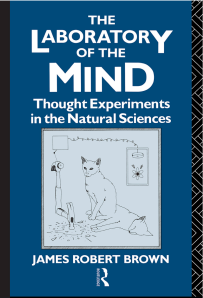I had heard about Sophie’s World from quite a number of sources. Finally I got a worn out copy from Fort for 100 bucks. Finished it in the next couple of days. This was about two years back. It is one of the best bedside introductions to philosophy…
Embedded in mystery and weirdness.
The best part of the climax is a p”hilosophical party”, which I also wish to have…
Quotes:
Who are you?
“You are me.”
“I am you.”
You can’t experience being alive without realizing that you have to die, she thought.
Where does the world come from?
How could it be “the easiest way”?
… the only thing we require to be good philosophers is the faculty of wonder…
Why was it so difficult to be absorbed in the most vital and, in a way, the most natural of all questions?
So it is easier to ask philosophical questions than to answer them.
Actually, we are the white rabbit being pulled out of the hat.
and anyway it would be pointless to chase after someone who was determined to get away.
It all has to do with habit.
Do you think it can do what it does?
A philosopher never gets quite used to the world.
She understood that people had always felt a need to explain the processes of nature. Perhaps they could not live without such explanations. And that they made up all those myths in the time before there was anything called science.
… nothing can come from nothing …
Once we have determined what a particular philosopher’s project is, it is easier to follow his line of thought, since no one philosopher concerns himself with the whole of philosophy.
How can I “see” a flower, for example?
You probably wouldn’t admire a friend who was good at everything if it cost her no effort.
She decided that philosophy was not something you can learn; but perhaps you can learn to think philosophically.
Why is Lego the most ingenious toy in the world?
Why did people quit playing when they grew up?
“I’m not playing!” Sophie retorted indignantly, “I’m doing a very complicated philosophical experiment!”
Do you believe in Fate?
Is sickness the punishment of the gods?
What forces govern the course of history?
Who had the right to call other people’s belief superstition?
One day we will meet, but I shall be the one to decide when and where.
Thus the “fortune-teller” is trying to foresee something that is really quite unforeseeable.
This is characteristic of all forms of foreseeing. And precisely because what they “see” is so vague, it is hard to repudiate fortune-tellers’ claims.
Over the entrance to the temple at Delphi was a famous inscription: KNOW THYSELF! It
reminded visitors that man must never believe himself to be more than mortal—and that no man can escape his destiny.
…wisest is she who knows she does not know…
Is there such a thing as natural modesty?
Wisest is she who knows she does not know…
True insight comes from within.
He who knows what is right will do right.
But today, most people think it is “natural,” even though
it is still strictly forbidden in lots of countries.
But the more she did, the more clearly she saw that knowing what you don’t know is also a kind of knowledge.
But didn’t all knowledge come into people’s heads from the outside?
The history of ideas is like a drama in many acts.
In order for democracy to work, people had to be educated enough to take part in the
democratic process.
“The question is complex and life is short.”
Modesty—or the lack of it—is first and foremost a matter of social convention.
“You can seek him in the present, you can seek him in the past, but you will never find
his equal.” on Socrates
So it is no easy matter to distinguish between the teachings of Socrates and the philosophy of Plato.
Socrates saw his task as helping people to “give birth” to the correct insight, since
real understanding must come from within. It cannot be imparted by someone else. And only
the understanding that comes from within can lead to true insight.
Something within him left him no choice.
A “philosopher” really means “one who loves wisdom.”
A philosopher knows that in reality he knows very little.
…it troubled him that he knew so little.
“One thing only I know, and that is that I know nothing.”
Any one question can be more explosive than a thousand answers.
All he knew was that he knew nothing—and it troubled him. So he became a
philosopher—someone who does not give up but tirelessly pursues his quest for truth.
Can you live a happy life if you continually do things you know deep down are wrong?
“We don’t learn anything there. The difference between schoolteachers and philosophers is that school-teachers think they know a lot of stuff that they try to force down our throats. Philosophers try to figure things out together with the pupils.”
“It’s not him who’s disturbed. But he likes to disturb others—to shake them out of their rut.”
… several tall buildings had risen from the ruins …
We still speak of Socratic or Platonic philosophy, but actually being Plato or Socrates is quite another matter.”
Plato’s four tasks.
First you must think over how a baker can bake fifty absolutely identical cookies.
Then you can ask yourself why all horses are the same.
Next you must decide whether you think that man has an immortal soul.
And finally you must say whether men and women are equally sensible.
… a longing to return to the realm of the soul…
Because even though some horses were as brown as bears and others
were as white as lambs, all horses had something in common.
All she knew was that dead bodies were either
cremated or buried, so there was no future for them.
Why are horses the same, Sophie? You probably don’t think they are at all. But there is
something that all horses have in common, something that enables us to identify them as
horses. A particular horse “flows,” naturally. It might be old and lame, and in time it will die. But
the “form” of the horse is eternal and immutable.
Because clearly, the mold itself must be utter perfection—and in a sense, more beautiful—in comparison with these crude copies.
… the girl in the mirror winked with both eyes…
Was it the path she had taken earlier?
How could a person who had never seen a live chicken or a picture of a chicken ever have any “idea” of a chicken?
What came first—the chicken or the “idea” chicken ?
Are we born with innate “ideas”? What is the difference between a plant, an animal, and a human?
Why does it rain?
What does it take to live a good life?
…a meticulous organizer who wanted to clarify our concepts …
You’ll have to content yourself with the fact that you are not the only one who can’t exceed your own limits.
Everybody is more or less peculiar. I am a person, so I am more or less peculiar. You have only one girl, so I am the most peculiar.
Common sense and conscience can both be compared to a muscle. If you don’t use a muscle, it gets weaker and weaker.”
The world is me, she thought.
And as you know, when a thing gets bigger and bigger it’s more difficult to keep it to yourself.
It is the only way to become more than a naked
ape. It is the only way to avoid floating in a vacuum.
… going only part of the way is not the same as going the wrong way…
Sorry. My lips are sealed.”
But she had been nervous, and when you’re nervous its comforting to break all taboos.
“It’s easy to know better after the fact.”
We shall become better acquainted by and by
But philosophy is not a harmless party game.
One generation ages while another generation is brought forth.
Life is both sad and solemn. We are let into a wonderful world, we meet one another here, greet each other—and wander together for a brief moment. Then we lose each other and disappear as suddenly and unreasonably as we arrived.
“It’s not a silly question if you can’t answer it.
“Does all this really matter?” “Does it matter? You bet it matters!
“Smart. But not so smart really.”
“Is it really as simple as that?”
For the wages of sin is death.
That was a serious slip of the tongue.”
“But a slip of the tongue is never wholly accidental.”
…such stuff as dreams are made on…
She knew her mother knew that Sophie knew her mother wouldn’t believe it either.
“No, there’s a lot I don’t know.”
“Well, nearly everything that’s important comes either from Greece or from Italy.”
That was actually quite a lot in the space of one second.
carpe diem’—‘seize the day.’
‘memento mori,’ which means ‘Remember that you must die.’
But any display of magnificence presupposes a display of power. It has often been said that the political situation in the Baroque period was not unlike its art and architec
… he wanted to clear all the rubble off the site…
“You begin to work out your own philosophy.”
‘How can you be certain that your whole life is not a dream?’





